Uncategorized
-
 Physics
Physics50 years ago, timekeepers deployed the newly invented leap second
After more than 50 years, metrologists will stop using the leap second to align the time kept by atomic clocks with the rate of Earth’s spin.
-
 Space
SpaceAstronomers have snapped a new photo of the black hole in galaxy M87
The Event Horizon Telescope image shows material around the black hole has moved, but other aspects remain the same, proving Einstein is right again.
By Adam Mann -
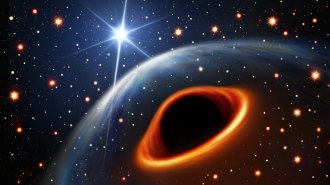 Astronomy
AstronomyAstronomers are puzzled over an enigmatic companion to a pulsar
The strange entity has a mass between that of a neutron star and a black hole. It’s either one or the other or something else entirely.
By Adam Mann -
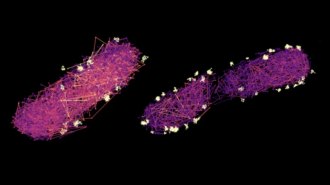 Life
LifeHow disease-causing microbes load their tiny syringes to prep an attack
Tracking individual proteins in bacterial cells reveals a shuttle-bus system to load tiny syringes that inject our cells with havoc-wreaking proteins.
By Elise Cutts -
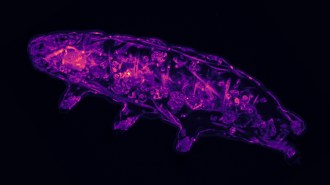 Chemistry
ChemistryHere’s how tardigrades go into suspended animation
A new study offers more clues about the role of oxidation in signaling transitions between alive and mostly dead in tardigrades.
-
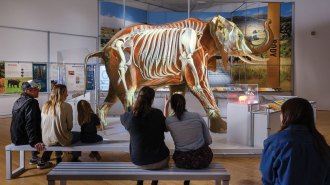 Animals
AnimalsA new exhibit invites you into the ‘Secret World of Elephants’
As elephants face survival threats, the American Museum of Natural History highlights their pivotal role in shaping landscapes — and their resilience.
-
 Animals
AnimalsSome mysteries remain about why dogs wag their tails
Wagging is a form of communication, with different wags meaning different things, but scientists know little about the behavior’s evolution in dogs.
By Jude Coleman -
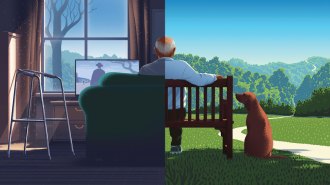 Health & Medicine
Health & MedicineIs aging without illness possible?
Researchers are harnessing basic biology to develop drugs that foster healthy aging. Just don’t call them antiaging pills.
-
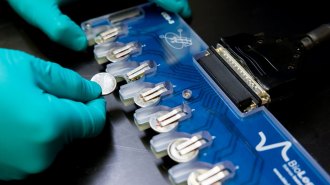 Materials Science
Materials ScienceArtificial intelligence helped scientists create a new type of battery
It took just 80 hours, rather than decades, to identify a potential new solid electrolyte using a combination of supercomputing and AI.
-
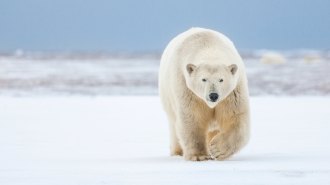 Materials Science
Materials ScienceA fiber inspired by polar bears traps heat as well as down feathers do
Scientists took a cue from polar bear fur to turn an ultralight insulating material into knittable thread.
By Jude Coleman -
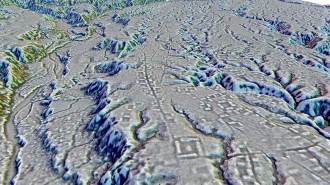 Archaeology
ArchaeologyAn ancient, massive urban complex has been found in the Ecuadorian Amazon
Found by airborne laser scans, this settlement and others throughout Mesoamerica and the Amazon are shifting how archaeologists think about urbanism.
By Amanda Heidt -
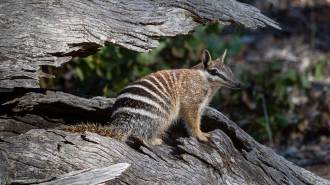 Climate
ClimateNumbats are built to hold heat, making climate change extra risky for the marsupials
New thermal imaging shows how fast numbats’ surface temperature rises even at relatively reasonable temperatures.
By Jake Buehler